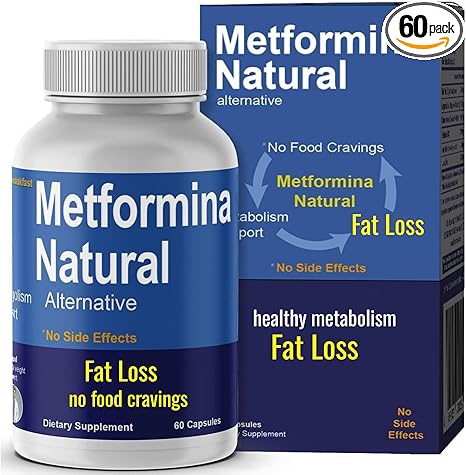The Ultimate Guide to Weight Loss
Have you ever felt frustrated standing on the scale, watching the numbers refuse to budge despite all your hard work? You’re not alone. Millions of people struggle with weight loss, and with so many diets, supplements, and “quick fixes” out there, it’s hard to know what really works. The truth is, successful weight loss isn’t about fad diets or starving yourself—it’s about understanding your body, making smart choices, and building habits that last a lifetime.
In this guide, we’re breaking down the real science of weight loss, the most effective strategies, and how you can achieve results that actually stick. Whether your goal is to burn fat, boost energy, or feel more confident in your own skin, you’ll find practical tips here to set you on track.
Why Weight Loss is So Challenging
Weight loss is not just about cutting calories—it’s about how your body responds to those calories. The body is designed for survival, so when it senses a calorie deficit, it often slows your metabolism to conserve energy. Hormones like leptin and ghrelin also kick in, making you hungrier and more likely to overeat.
On top of that, stress, poor sleep, lack of exercise, and even genetics can influence how easily you lose weight. This is why cookie-cutter diets often fail—they don’t take into account individual needs and metabolic differences. To succeed, you need a personalized and holistic approach.
The Science of Fat Loss
At its core, weight loss comes down to creating a calorie deficit. To burn 1 pound of fat, you need to create a deficit of about 3,500 calories. But rather than focusing purely on calorie restriction, it’s better to think about the quality of the calories you’re consuming and how your metabolism responds.
Key contributors to fat loss include:
- Metabolism: The rate at which your body burns fuel. Increased muscle mass and regular activity boost metabolism.
- Thermic Effect of Food (TEF): Protein requires more energy to digest than carbs or fats, meaning a protein-rich diet can slightly raise calorie burn.
- Hormones: Insulin, cortisol, and thyroid hormones all regulate fat storage and energy usage. Managing stress, sleep, and diet keeps these in balance.
Weight Loss Strategies That Actually Work
1. Balanced Nutrition Over Extreme Dieting
Popular diets like keto or intermittent fasting can be effective, but they’re not one-size-fits-all. The most sustainable approach is to focus on nutrient-dense foods:
- Lean proteins (chicken, fish, tofu, beans)
- High-fiber vegetables and fruits
- Whole grains (quinoa, oats, brown rice)
- Healthy fats (avocados, nuts, olive oil)
Avoid overly restrictive diets because they can backfire, leading to cravings, binge eating, and nutrient deficiencies.
2. Strength Training to Boost Metabolism
Many people assume cardio is the fastest way to lose fat, but strength training is equally important. Building lean muscle increases your resting metabolic rate, so you burn calories even when you’re not exercising. Aim for at least two to three strength sessions per week targeting major muscle groups.
3. Smarter Cardio
High-Intensity Interval Training (HIIT) is one of the most time-efficient ways to burn fat. Alternating between short bursts of intense effort and rest periods maximizes calorie burn both during and after the workout. Pairing HIIT with steady-state cardio (like brisk walking or cycling) gives you the best of both worlds.
4. Sleep and Stress Management
Underrated but critical, sleep and stress have a direct impact on weight loss. Poor sleep raises cortisol levels, which increase cravings for sugar and processed foods. Prioritizing 7–9 hours of quality rest and practicing stress management (yoga, meditation, journaling) helps control hunger and hormones.
5. Hydration and Mindful Eating
Drinking enough water not only aids metabolism but also curbs unnecessary snacking. Sometimes your body mistakes thirst for hunger. Also, practicing mindful eating—slowing down, savoring meals, and stopping when you’re comfortably full—prevents overeating.
Common Weight Loss Mistakes to Avoid
- Relying on fad diets: These may offer quick results but rarely provide lasting success.
- Skipping meals: This can slow metabolism and lead to binge eating later in the day.
- Overestimating calorie burn: Fitness trackers often overstate calories burned during exercise.
- Ignoring mental health: Emotional eating and stress-related habits derail many weight loss plans.
Creating a Sustainable Routine
The most successful weight loss journeys are built on small, consistent changes rather than drastic overhauls. Instead of aiming to lose 20 pounds in a month, create realistic goals like:
- Cooking three healthy meals at home per week
- Adding an extra 2,000 steps a day
- Swapping soda for water
- Progressively increasing workout intensity
Tracking progress with photos, measurements, and non-scale victories (like improved energy and better sleep) can make the process more motivating.
Is Weight Loss the Same for Everyone?
The short answer is no. Age, genetics, body type, and lifestyle all play roles. For example:
- Men vs. Women: Men often lose fat faster due to higher muscle mass.
- Age Factor: Metabolism naturally slows with age, requiring greater focus on diet and strength training.
- Hormonal Influences: Conditions like hypothyroidism or PCOS can make weight loss more challenging.
That’s why comparing your journey to others can be counterproductive. Focus on your own progress and celebrate every victory, big or small.
Final Thoughts on Successful Weight Loss
Weight loss is not about punishing your body—it’s about supporting it. When you fuel your body with nutritious foods, build healthy movement habits, and take care of your mental health, the weight will follow naturally. Forget the crash diets and weight-loss gimmicks. Instead, create a lifestyle that you can maintain long-term.
If you’re patient and consistent, lasting weight loss is not only possible—it’s inevitable.
Today’s featured product:

